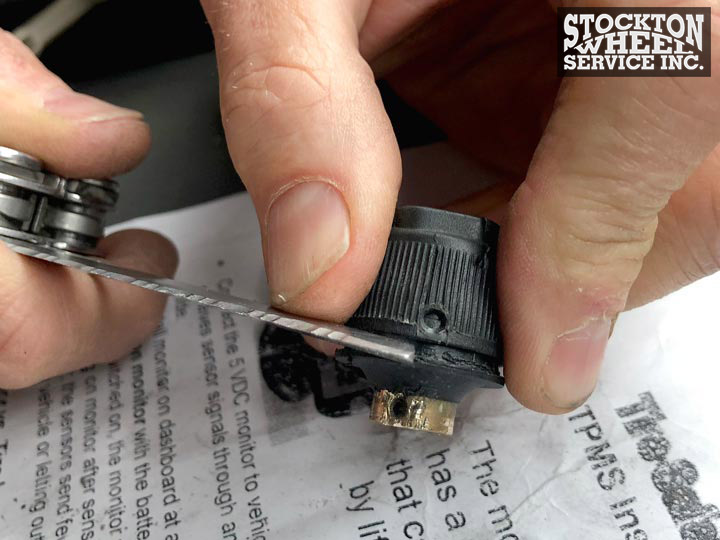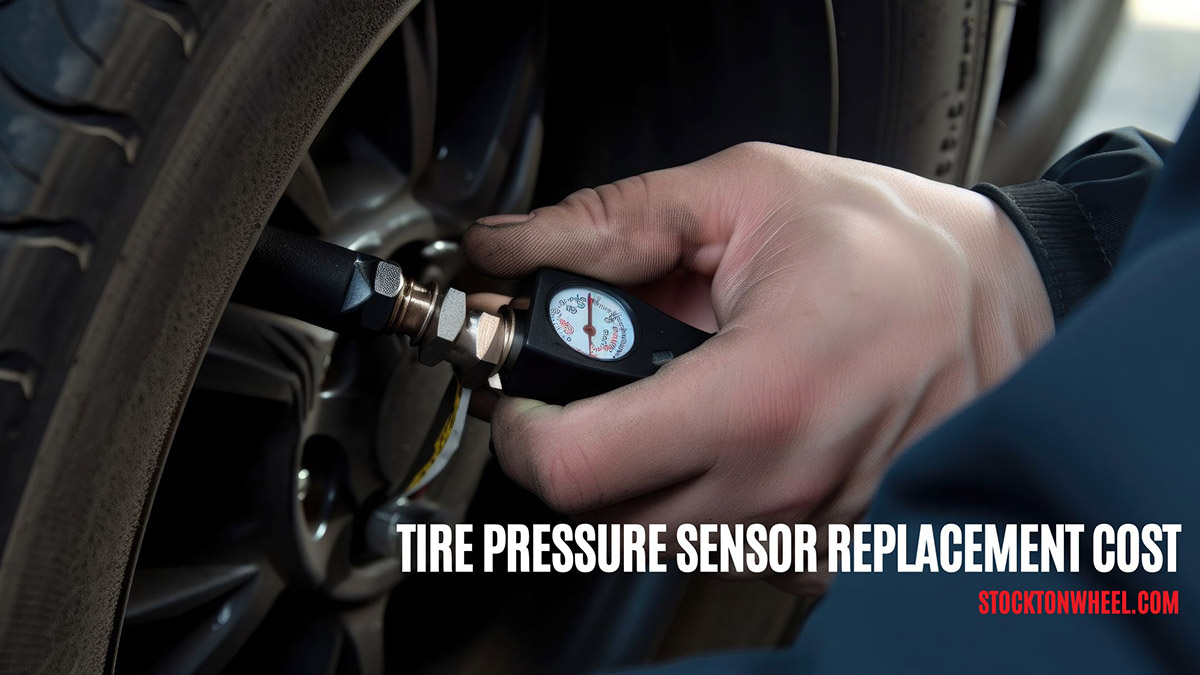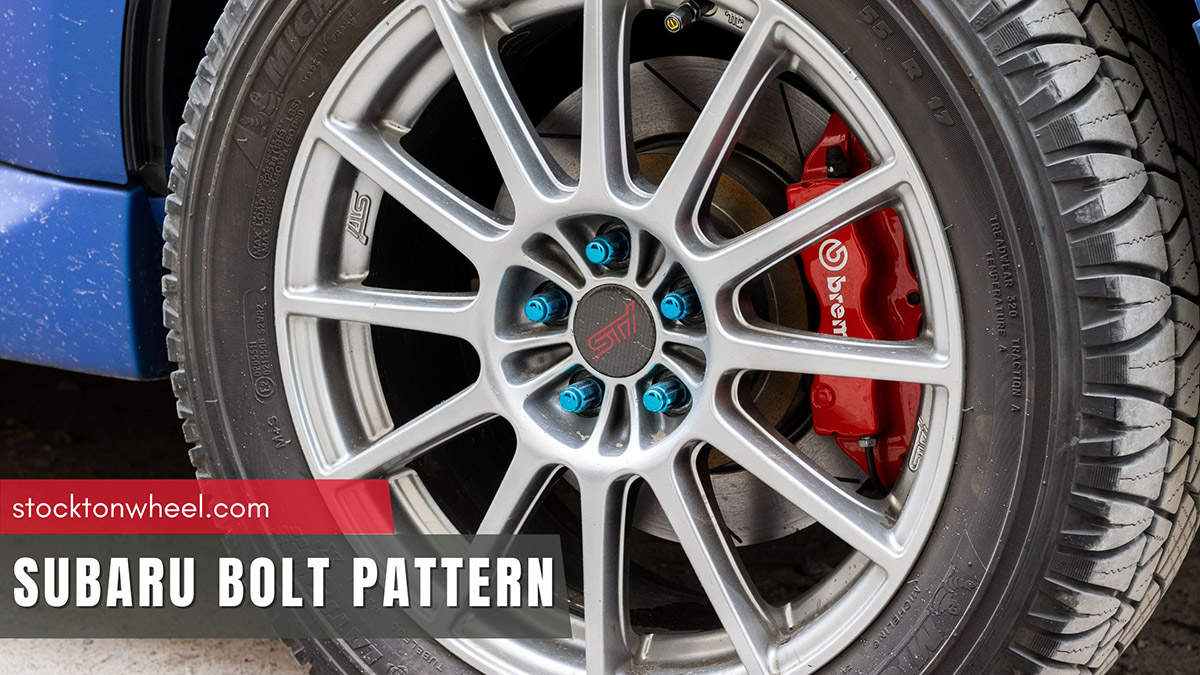Sometimes, the blinking tire pressure light is not a response to low pressure or temperature fluctuations; it might stem from faulty TPMS sensors instead.
Most of the time, repairs are not feasible; they must be replaced immediately. Therefore, many beginners question the tire sensor replacement cost, which we will discuss in the following sections.
In this article:
TPMS Sensor Replacement Cost
Replacing a TPMS sensor can cost between $50 and $350 per one, depending on the type of sensor used or the service provider. Having them changed at dealerships might increase the price, and even auto services in the same geographical areas might have different labor costs.

Some common replacement options are as follows:
1. Dealership Replacement
As one of the most common options, sensor replacements at dealerships have both advantages and potential drawbacks.
The Pros
- Expertise and Specialization: Dealerships hire technicians who are well-trained and specialized in specific makes and models of vehicles. Therefore, they usually understand your car’s TPMS system very well, guaranteeing accurate diagnoses and efficient replacements.
- Quality Equipment: Each staff has easy access to all the latest equipment and technology suited to each car type, reducing the risks of wrong installments or missing calibration.
- Warranty Coverage: So far, most dealerships offer generous warranties on both the replacement parts and the labor performed. Any unforeseen issues related to the TPMS sensors will be handled properly without additional expenses, giving you peace of mind.
The Cons
- Higher Costs: Due to updated equipment, premium services at dealerships are much more expensive than DIY solutions or independent mechanics. And if the replacement calls for lots of brand-specific knowledge to address your sensor damage, expect to pay even higher.
- Appointment Wait Times: With their expanding reputation and highly acclaimed services, dealership technicians might ask their customers to wait hours for an appointment – a huge drawback if you have little free time or only want a quick fix.
2. Independent Mechanics

Like dealership replacements, replacement services with independent mechanics excel in certain aspects and lack in others.
The Pros
- Cost-Effective: Unlike dealerships, independent mechanics offer more budget-friendly pricing – a great choice for tight-budget drivers.
- Personalized Service: Do you prefer a more personalized and customer-centric experience? Then, choosing independent mechanics is a wise move. The staff will constantly and directly communicate with you during the replacements to minimize misunderstanding and address extra requirements (if any).
- Faster Turnaround: Customers do not have to wait that long when working with independent mechanics, so there’s no need to time your appointments strictly. Just drop by anytime if you want!
The Cons
- Less Specialized Knowledge. Some mechanics do not have the same level of expertise you often see in dealership technicians, especially regarding specific car makes and models. As a result, they might take longer to diagnose or adjust the sensor positions during replacements.
- Limited Warranty. Although some independent mechanics do offer warranties on replacement parts and labor, they might not be as inclusive or long-lasting as those provided by dealerships.
3. DIY Replacements
Confident in your mechanical skills and have the right tools? Then, a do-it-yourself (DIY) project is the best option for you, although there are still some drawbacks to look out for.
The Pros
- Cost Savings: DIY replacement is typically the most cost-effective out of the three options on our list. You can shop for affordable replacement sensors and save on labor costs.
- Convenience: As a DIYer, you can fully control the replacement process. Feel free to work at your own pace or according to your personal schedule.
The Cons
- Mechanical Skill Required: DIY replacements demand high levels of mechanical knowledge and skill. Lacking experience leads to severe errors that might wreck the sensor and TPMS system.
- Specialized Tools: To perform the task, you will need specific tools and equipment, which means extra investments and expenses if you do not have them on hand already.
- No Warranty: If any issue arises, you are 100% responsible for further repairs. There is no warranty or coverage this time!
Where To Have Tire Pressure Sensors Replaced Near Me
Below are three highly-rated auto/tire shops that offer TPMS sensor replacement. Consider their locations and average cost to settle on the most suitable option:
Pep Boys
- Replacements of tire pressure monitoring sensors: $17.99 each (minimum)
- TPMS checkup service: $14.99 each (minimum)
Jiffy Lube
The price for a tire pressure sensor replacement depends on your location, vehicle models, and sensor type. Type your information into this search bar to estimate the pricing.
Firestone Auto Care
Like Jiffy Lube, your vehicle model and manufacturing year will dictate the exact number. Enter the required information here to see how much it costs.
Can You Still Drive Without Replacing The Faulty Tire Pressure Sensor?
While you can still drive without replacing a TPMS sensor, it is not recommended. The tire pressure monitoring system is designed to alert you to low tire pressure – an issue that might lead to car crashes, blowouts, or control loss if not addressed.
Can You Fix The Tire Pressure Sensor Fault By Yourself To Save Cost?
Yes, DIY replacements are quite straightforward if you are experienced and have the right tools. Just keep in mind the following when you change the tire pressure sensor:
- Choose the correct type of tire pressure sensor for your vehicle.
- Be careful not to overtighten them.
- Apply a bead of sealant to the threads of the new tire pressure sensors to prevent leaks.
- Have your tire pressure sensors reprogrammed after replacements.
Conclusion
You can choose to have your TPMS sensors replaced at dealerships or by independent mechanics, depending on your budget and preferences. DIY is another viable option, but remember that this is not for the inexperienced.
Write to us if you need help with anything else.








